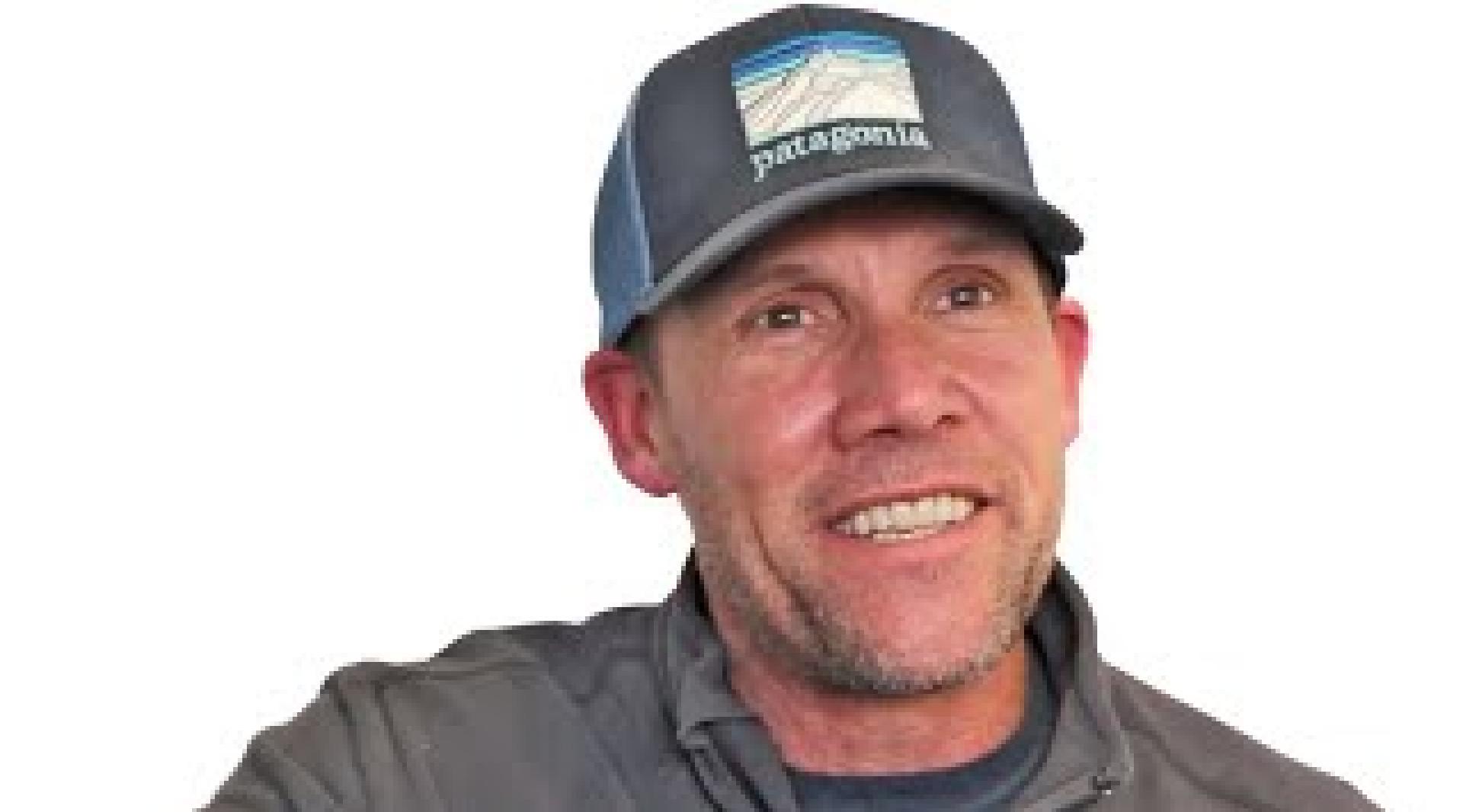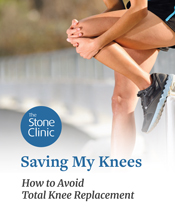Partial Knee Replacement for Experienced Ultra Runner (3 Months Post-Op)
Chris W, I had cartilage damage to the inside of my left knee and ended up opting for a partial knee replacement.
I have competed in about 60 to 70 ultra-marathons and got to do some of those internationally, which was a lot of fun. At the same time, um, I think caused some injury along the way. Um, and so it was a gradual process of getting more uncomfortable in my knee, still running, still active, skiing, but slowly having some restrictions in my range of motion and everything else until it got to the point where I felt like I had to seek, uh, you know, someone's opinion to see what was going on.
So I ended up meeting with another physician, discussing my imaging, and was told that I needed a full knee replacement. I had limited options, uh, and essentially any additional running or active sports was probably off the table moving forward, which, when you hear something like that, as somebody who competed the way I did and everything else, I mean, it was like, you know, part of your life potentially taken away from you. And I'm 50 years old and I know my kids think that's old, but <laugh>, you know, I, maybe I don't so much. So, um, so I, that was a tough pill to swallow. And instantly enough I ran into a really close friend of mine who was previously a patient of Dr. Stone's and said, and I, she saw me, I was pretty upset about hearing this news, and she said, well, did you meet with Dr. Stone? I said, I don't, I don't know who that is. And she said, oh, he's in San Francisco. You should go talk to him. And, uh, his approach was 180 degrees the other way, you know, it was, what do you want to do? Which nobody had ever asked me before, you know, what is it that you want to do? And I told him and he said, well, our goal is to get you back to doing that. And looked at my imaging, we came up with a plan and he felt confident, you know, given what the partial knee replacement could do for my injury specifically, that, um, that that would be the best option for me. And, you know, here I am three months post-surgery, you know, getting ready to go on a Turkey trot run here in a couple weeks. So, um, pretty happy about that.
Yeah, I think when you're, when you're told you need, whether it's a partial knee replacement, a full knee, knee replacement, it all sounds kind of the same, right? When you're, you're thinking replacement, big operation, um, you know, all that sort of stuff, right? So when I learned that it would be an outpatient procedure done robotically, uh, and my wife would be dropping me off at 7:30 in the morning and picking me up at about 2:30 in the afternoon, that was a pleasant surprise. You know, and then I was really, I was really surprised that the rehab started postop day one. I wasn't expecting that either. And I was amazed at how much I was able to progress even within that first week or two. You know, never had a brace, never had that much restricted motion, you know, always doing dynamic things just right away I think was something that was an eye-opening experience for me because you, you know, my uncle had knee replacement and this was 20 years ago, and needless to say, it's a lot different back then, you know? So I was just shocked at how seamless that part of it was and how, um, it just seemed like a not as big of an operation as I guess I was anticipating. Right. Um, and, and, and again, everything else, uh, beyond that kind of exceeded my expectations to the rehab process.
Yeah, it seems like every, every week, um, is, is meaningful. You know, I kinda look at it cuz they say 12 weeks, you know, so you start counting, okay, what can I get done week one, week two, week three? And I think for me, what, um, what's been the most remarkable is that, you know, I was in a, I mean, when I went in for the operation, like I had a fair amount of pain, you know, at that point, right? And I'd probably continued to run more than I should have and probably, you know, whether that caused more damage, I'm not sure. Um, but during the rehab process coming out of the surgery and that specific pain from my knee injury was gone like immediately almost, which, which was um, which was kind of crazy, you know? Uh, so then you're just dealing with the other, you know, general discomforts of surgery, right?
Your range of motion and managing your swelling and things like that. But that's the thing that really hit me. I remember coming in and, and speaking with him just a, a few weeks after the operation and cuz you're walking around already, you know, I was off crutches in two and a half weeks and I said, the, the, the amazing thing is that the area that hurt doesn't hurt anymore, you know? And, and, and that was, that was amazing I thought mm-hmm. <Affirmative>, you know, and then ever since then it just seems like, um, you know, it's very goal-oriented. I've been in a very goal-oriented rehab, so it's kind of like, hey, so this week we're gonna focus on this and then this week we're gonna focus on this, you know, and now it's just exciting to kind of get into having gotten into more kind of pre-running drills. They haven't turned me loose yet, but, um, but the anticipation of getting back to running, um, you know, being able to work that in is pretty exciting.
Yeah, so I feel, and I feel pretty good about that because I've been, um, rehabbing pretty aggressively. Meaning like I can, you know, push myself pretty hard on a peloton now, um, hiking five, six miles, not a problem. Uh, so it's really just kind of taking that, that next step, you know, to incorporating just that much more kind of impact on the joint and everything. And so to have gone in at 12 weeks and know I'm on track know that, you know, my range of motion is where it needs to be. My strength is where it needs to be. It just gives me a lot of confidence that I can trust, I can trust my knee now, you know, to take that next step and start to um, you know, start to take some running steps.
I mean, in addition to the running piece, you know, I'd envision my call 'em golden years or whatever to be spent out on the trails in the mountains, you know, and, and to think that not only could I not run, but maybe could I not do that with my wife and do something in nature outside that we love to do was kind of like a double whammy, you know, in some ways. And so just knowing that, um, that all the options are still ahead of me, uh, is, is something that I, again, I didn't think was gonna be possible when I originally got my diagnosis,
I think, um, is certainly if you're an active person, um, and probably really anybody, I think it's, it's so important having gotten the kind of recommendations and feedback that I got from other people before I came to the Stone Clinic, it reminds me that you've gotta be your own advocate. You know, if it's important to you that you want to do these things and you're not getting those answers from someone, keep looking. You know, and in my case, I was so fortunate to find Dr. Stone in the clinic here because, you know, I just would be in such a different place, I think, um, not only physically, but probably emotionally, you know, I mean, being active is so important to me. And the treatment plan I was given before meeting with Dr. Stone, um, would've curtailed that a lot. And I, you know, I think that would've been very hard for me to deal with because it was such an important part of my life. And so being an advocate for yourself, you know, doing your research, going out there and, and finding someone whose goals and treatment plans are gonna be aligned with what your goals are, I think is the most important. And that's why, you know, in my first consult here in the first two minutes I was like, I found the guy.
Chris W. Profile
Chris is an active runner and skier, but gradually experienced discomfort and restrictions in his range of motion due to cartilage damage to the inside of his left knee. He initially received a recommendation for a total knee replacement, which would have limited his ability to continue running and participating in triathlons. However, a friend recommended Dr. Stone at The Stone Clinic in San Francisco, who took a different approach and focused on getting Chris back to doing what he loved. Chris underwent an outpatient robotic-assisted partial knee replacement and began rehab immediately after the surgery. Three months post-surgery, Chris is progressing well in his recovery and is looking forward to participating in a Turkey trot run.
Find a one-year post-op update to Chris's story here: Partial Knee Replacement for Ultra Runner (1 year post-op)


